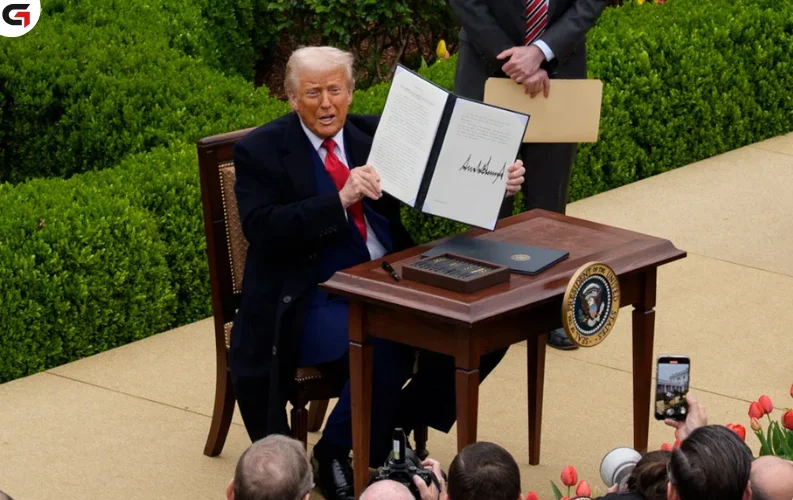US President Donald Trump has announced 100% tariffs on China, reigniting fears of a global trade war. The decision followed Beijing’s move to tighten export controls on rare-earth minerals, materials essential for smartphones, electric vehicles, and defense equipment.
Trump said the new measures would take effect from November 1, 2025, and include new export restrictions on critical U.S. software. He accused China of becoming “very hostile” and trying to hold the world “captive” by limiting the supply of rare earths.
Following the announcement, financial markets tumbled, with the Dow Jones falling nearly 900 points and the S&P 500 closing down 2.7%, its worst single-day performance since April. Investors fear renewed disruptions to global trade and supply chains, especially in industries dependent on rare-earth imports from China.
In a post on Truth Social, Trump warned that he could pull out of a planned meeting with Chinese President Xi Jinping, though he later said the meeting might still happen. “I’m going to be there regardless,” he told reporters, emphasizing that the United States will not tolerate what he called “economic blackmail.”
China’s dominance in rare-earth production continues to give it significant leverage in global trade. Its new export restrictions come alongside a monopoly investigation into the U.S. tech firm Qualcomm, raising further tensions between Washington and Beijing.
Earlier this year, when China limited exports, U.S. companies like Ford temporarily halted production, highlighting how dependent many industries remain on Chinese materials. The U.S. government, meanwhile, has been working to diversify supply sources, with the Pentagon purchasing rare-earth stakes and India exploring new production projects with major industrial groups like Vedanta and JSW.
From January to April 2025, average U.S. tariffs surged from 2.5% to nearly 27%, the highest rate in a century. Economists warn that the renewed escalation could disrupt global markets, fuel inflation, and slow economic growth across major economies.
Trump’s move marks a major turning point in U.S.–China relations, signaling a return to aggressive trade measures and heightening uncertainty across global markets.





















